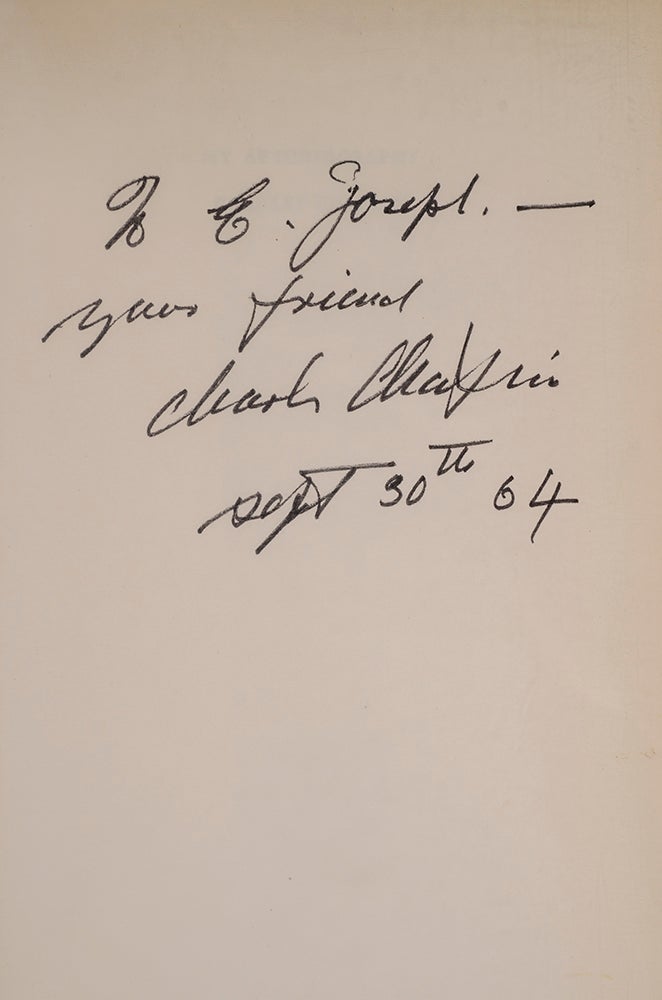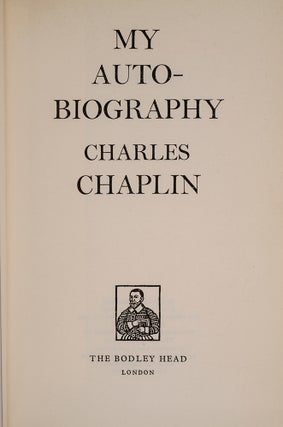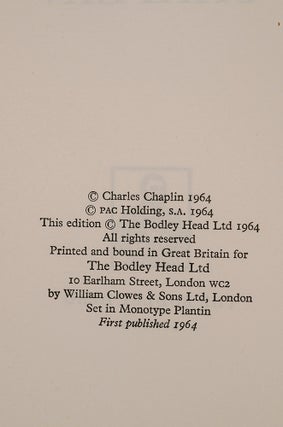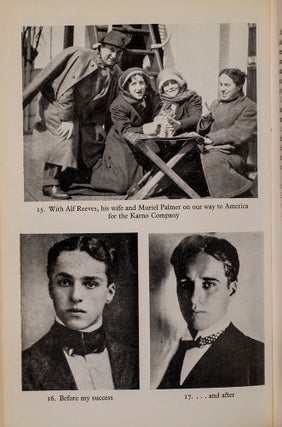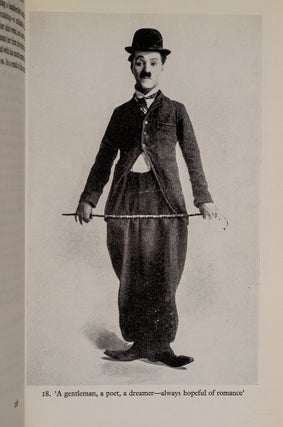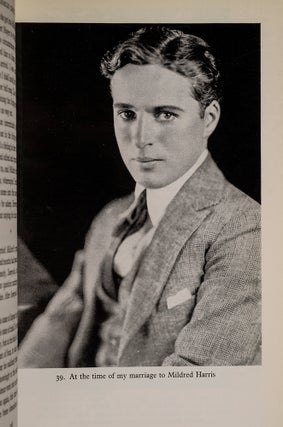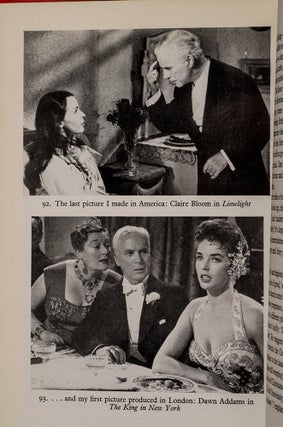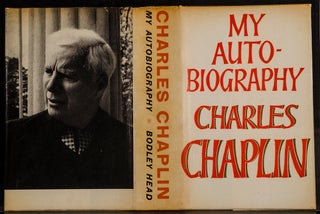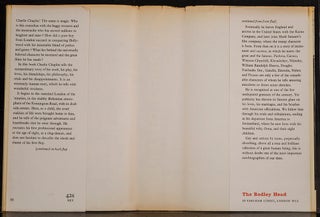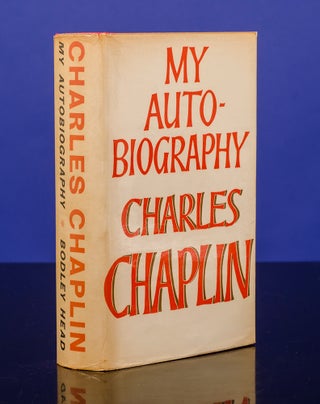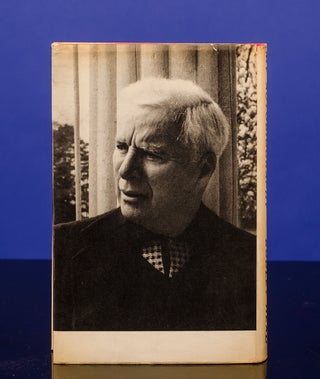My Auto-Biography
London: The Bodley Head, 1964. Item #04906
Inscribed by Charlie Chaplin to his Friend Sam Joseph
CHAPLIN, Charles. My Auto-Biography. London: The Bodley Head, [1964].
First edition.
Inscribed in black ink on the front free endpaper
"To E. Joseph.-/Your friend/Charles Chaplin/Sept 30th 64".
Octavo (8 1/2 x 5 1/2 inches; 216 x 140 mm.). [xiv], 545, [1, blank] pp. Publisher's red cloth over boards, front cover and spine lettered in gilt. Original dust jacket, spine very slightly darkened. A fine copy in an almost fine dust jacket.
The recipient was actually Sam Joseph the partner of Jack Joseph in the renowned bookshop E. Joseph in the famous book street Charing Cross Road. Sam Joseph (1895-1985) married the actress Binnie Barnes (1903-1998) in 1931.
Soon after he left the book business and he and Binnie Barnes moved to Hollywood where she appeared in many movies including The Private Life of Henry VIII, in which she had a leading role as his fifth wife Katherine Howard.
Their marriage ended in 1936 and Sam returned to London and went back into the book business with his brother Jack.
It was during the years in Hollywood that Sam and Binnie became friends with Chaplin who would occasionally visit the bookshop when he was in London. When My Autobiography was published in September 1964, Chaplin visited the bookshop and gave Sam this inscribed copy.
Sir Charles Spencer Chaplin KBE (16 April 1889 – 25 December 1977) was an English comic actor, filmmaker, and composer who rose to fame in the era of silent film. He became a worldwide icon through his screen persona, "The Tramp", and is considered one of the most important figures in the history of the film industry. His career spanned more than 75 years, from childhood in the Victorian era until a year before his death in 1977, and encompassed both adulation and controversy. In 1919, Chaplin co-founded the distribution company United Artists, which gave him complete control over his films. His first feature-length film was The Kid (1921), followed by A Woman of Paris (1923), The Gold Rush (1925), and The Circus (1928). He initially refused to move to sound films in the 1930s, instead producing City Lights (1931) and Modern Times (1936) without dialogue. He became increasingly political, and his first sound film was The Great Dictator (1940), which satirized Adolf Hitler. The 1940s were a decade marked with controversy for Chaplin, and his popularity declined rapidly. He was accused of communist sympathies, and some members of the press and public found his involvement in a paternity suit, and marriages to much younger women, scandalous. An FBI investigation was opened, and Chaplin was forced to leave the United States and settle in Switzerland. He abandoned the Tramp in his later films, which include Monsieur Verdoux (1947), Limelight (1952), A King in New York (1957), and A Countess from Hong Kong (1967). Chaplin wrote, directed, produced, edited, starred in, and composed the music for most of his films. He was a perfectionist, and his financial independence enabled him to spend years on the development and production of a picture. His films are characterized by slapstick combined with pathos, typified in the Tramp's struggles against adversity. Many contain social and political themes, as well as autobiographical elements. He received an Honorary Academy Award for "the incalculable effect he has had in making motion pictures the art form of this century" in 1972, as part of a renewed appreciation for his work. He continues to be held in high regard, with The Gold Rush, City Lights, Modern Times, and The Great Dictator often ranked on lists of the greatest films of all time.
Price: $3,500.00

 I have been in the rare and antiquarian book business for over forty years; my family has been in the rare books business since 1876. Rare books are in my blood.
I have been in the rare and antiquarian book business for over forty years; my family has been in the rare books business since 1876. Rare books are in my blood.
